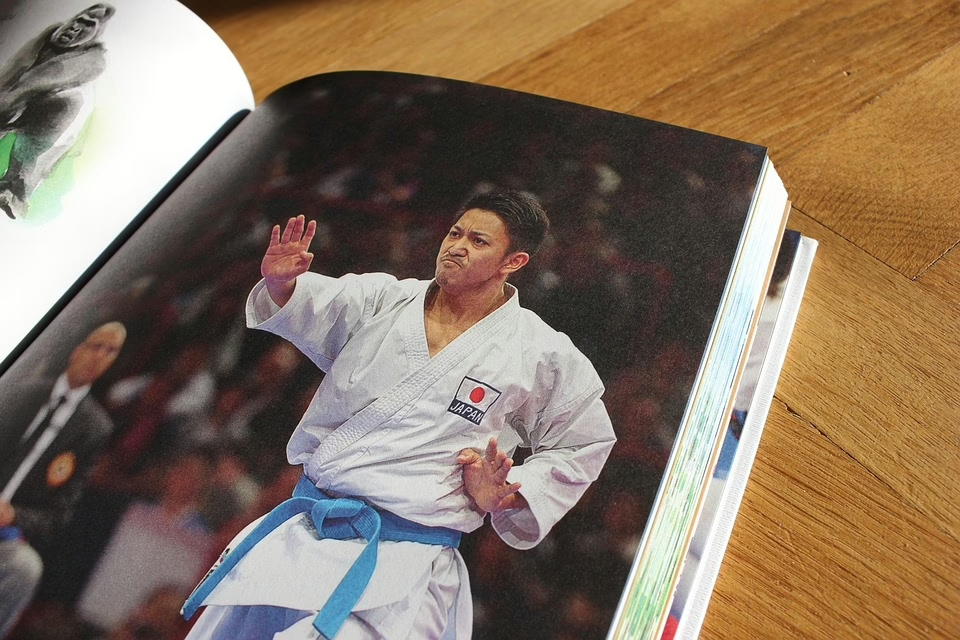Game Changers: Essential Reads for Athletes Pursuing Mental Toughness
In the world of sports, physical prowess is often what takes athletes to the top. However, as many successful athletes will attest, mental toughness is equally crucial in breaking barriers, overcoming obstacles, and achieving excellence. For athletes looking to sharpen their mental fortitude, there is no shortage of literary resources. This article explores essential reads that provide insights into mental toughness, resilience, and the psychology behind elite performance.
The Importance of Mental Toughness
Mental toughness is commonly defined as a psychological edge that helps athletes cope with pressure, remain focused, and bounce back from setbacks. Legendary sports figures like Michael Jordan and Serena Williams have often cited mental fortitude as a key to their success. In a sport where physical limits are often tested, having the mental ability to overcome challenges is vital.
Defining Mental Toughness
Mental toughness encompasses several components, including:
- Resilience: The ability to recover from failures or setbacks.
- Focus: Maintaining concentration despite distractions.
- Confidence: Belief in one’s abilities, even under pressure.
- Commitment: Staying dedicated, regardless of circumstances.
- Emotional Control: Regulating emotions to remain calm and collected during competitions.
Understanding these components helps athletes recognize their strengths and areas for improvement.
Literary Resources for Mental Toughness
1. “The Champion’s Mind: How Great Athletes Think, Train, and Thrive” by Jim Afremow
Jim Afremow, a sports psychologist, dives deep into the mental skills that separate champions from their competitors in this groundbreaking book. He intricately examines the mindset of top-level athletes, offering actionable strategies for mental performance.
Key Takeaways:
- Visualization Techniques: Afremow encourages athletes to visualize not just success but the process of getting there.
- Setting Goals: The book emphasizes the importance of setting short and long-term goals to maintain focus and motivation.
2. “Mind Gym: An Athlete’s Guide to Inner Excellence” by Gary Mack and David Casstevens
“Mind Gym” has quickly become a go-to book for athletes at all levels. Using anecdotes and insights from various sports personalities, this book provides mental exercises and techniques designed to enhance performance.
Key Takeaways:
- Mental Drills: The book offers practical mental drills that athletes can integrate with their physical training.
- The Power of Positive Thinking: Mack stresses the importance of cultivating a positive mindset and offers exercises to reframe negative thoughts.
3. “Grit: The Power of Passion and Perseverance” by Angela Duckworth
Though not strictly a sports book, “Grit” is essential reading for athletes. Angela Duckworth’s research highlights the significance of perseverance and hard work over innate talent, a message that resonates strongly within the sports community.
Key Takeaways:
- The Role of Effort: Duckworth posits that success is largely a function of effort over time, a crucial lesson for athletes.
- Building Passion: The book discusses how to cultivate interests and develop the passion necessary to excel in sports.
4. “The Mindful Athlete: Secrets to Pure Performance” by George Mumford
George Mumford, known for his work with legendary athletes like Michael Jordan, introduces the concept of mindfulness in sports. This book offers a unique take on achieving peak performance through the practice of mindfulness.
Key Takeaways:
- Mindfulness Practice: Mumford discusses techniques for athletes to remain present during competition, reducing anxiety and boosting confidence.
- Emotional Intelligence: The book emphasizes the importance of self-awareness and emotional control in high-pressure situations.
5. “Relentless: From Good to Great to Unstoppable” by Tim Grover
Tim Grover, trainer to elite athletes like Kobe Bryant and Michael Jordan, presents a straightforward approach to developing a “relentless” mindset. His insights offer practical tips on how to embrace discomfort and adversity.
Key Takeaways:
- Embrace Discomfort: Grover urges athletes to step outside their comfort zones to reach their true potential.
- Mental Conditioning: He provides strategies for mental conditioning that align with physical training.
6. “The Mental Game of Tennis: A Guide to the Mental Side of Peak Performance” by Jeffrey W. Wilstein
Though focused on tennis, the principles in this book can apply to any sport. Wilstein explores various psychological aspects of sports performance, offering tips to overcome mental barriers.
Key Takeaways:
- Coping with Pressure: The book discusses techniques to handle competitive pressure and maintain composure during matches.
- Preparation: Wilstein highlights the importance of mental preparation as a complement to physical training.
7. “Bounce: The Myth of Talent and the Power of Practice” by Matthew Syed
In “Bounce,” Matthew Syed argues against the notion of innate talent being the primary factor in success. Instead, he highlights the benefits of deliberate practice.
Key Takeaways:
- 10,000-Hour Rule: Syed popularizes the idea that achieving mastery in any field requires approximately 10,000 hours of practice.
- Overcoming Obstacles: He provides real-life examples of athletes who faced numerous setbacks but persevered through hard work and commitment.
8. “The Art of Mental Training: A Guide to Performance Excellence” by D.C. Gonzalez
Gonzalez’s book combines techniques from psychology with practical applications for athletes. The guide emphasizes the training of the mind as vigorously as the body.
Key Takeaways:
- Daily Mental Exercises: The book includes structured exercises that can be incorporated into daily training routines.
- Creating Mental Resilience: Gonzalez provides tools for developing mental resilience, an essential component of mental toughness.
9. “What I Talk About When I Talk About Running” by Haruki Murakami
This memoir by acclaimed author Haruki Murakami explores his experiences as a long-distance runner. While not a self-help book, it offers profound insights into the mental challenges faced during training and competition.
Key Takeaways:
- Finding Flow: Murakami reflects on the state of flow and how it applies to both running and life.
- Personal Reflection: His narrative encourages readers to engage in self-reflection and consider the deeper motivations for their pursuits.
10. “The 5 AM Club: Own Your Morning, Elevate Your Life” by Robin Sharma
While not exclusively for athletes, this book focuses on the power of morning routines to set the tone for the day, a vital factor for mental clarity and focus in sports.
Key Takeaways:
- Morning Rituals: Sharma emphasizes the importance of establishing a disciplined morning routine to boost productivity and mental sharpness.
- Mindset Shift: The book encourages readers to adopt a growth mindset, which is crucial for athletes aiming for mental toughness.
Integrating Lessons into Practice
Reading these materials is beneficial, but the key to developing mental toughness lies in integrating the lessons and techniques into daily routines. Here are some strategies:
1. Set SMART Goals
SMART goals (Specific, Measurable, Achievable, Relevant, Time-bound) can help athletes outline their paths to success. Goal-setting promotes focus and provides measurable milestones.
2. Visualization Techniques
Incorporate visualization into daily practice to mentally prepare for competition. Athletes can visualize their performance, embracing both success and overcoming potential obstacles.
3. Build Resilience through Reflection
After competition or training, take time to reflect on experiences. Analyzing what went well and what could be improved fosters resilience.
4. Adopt Mindfulness Practices
Mindfulness exercises, such as meditation or breathing techniques, can help athletes remain present and reduce anxiety during competitions.
5. Continuously Learn and Adapt
Stay committed to learning. By continually expanding knowledge and adapting techniques, athletes can better navigate the complexities of mental performance.
Conclusion
Mental toughness is a game changer in the world of sports. The journey to developing this vital attribute requires continuous learning, practice, and reflection. The books mentioned in this article serve as valuable resources for athletes at all levels, providing insights into the psychological mechanisms behind peak performance. By integrating these lessons into their training regimens, athletes can cultivate the mental edge necessary to excel not just in sports, but in life.
Incorporating the principles of mental toughness into daily routines can amplify physical training and lead to extraordinary achievements. Remember, the mind plays a pivotal role; it is time to treat it with the same diligence and dedication as the body.
By engaging with these texts and strategies, athletes can embark on a transformative journey towards heightened mental toughness and thereby enhance their overall performance. It’s not just about physical skill; it’s about cultivating a mindset that champions resilience, focus, and an unwavering belief in oneself. The thought-provoking ideas and practices shared in these essential reads can serve as stepping stones towards a more robust mental foundation, ultimately leading to lasting success in sports and beyond.


























Add Comment